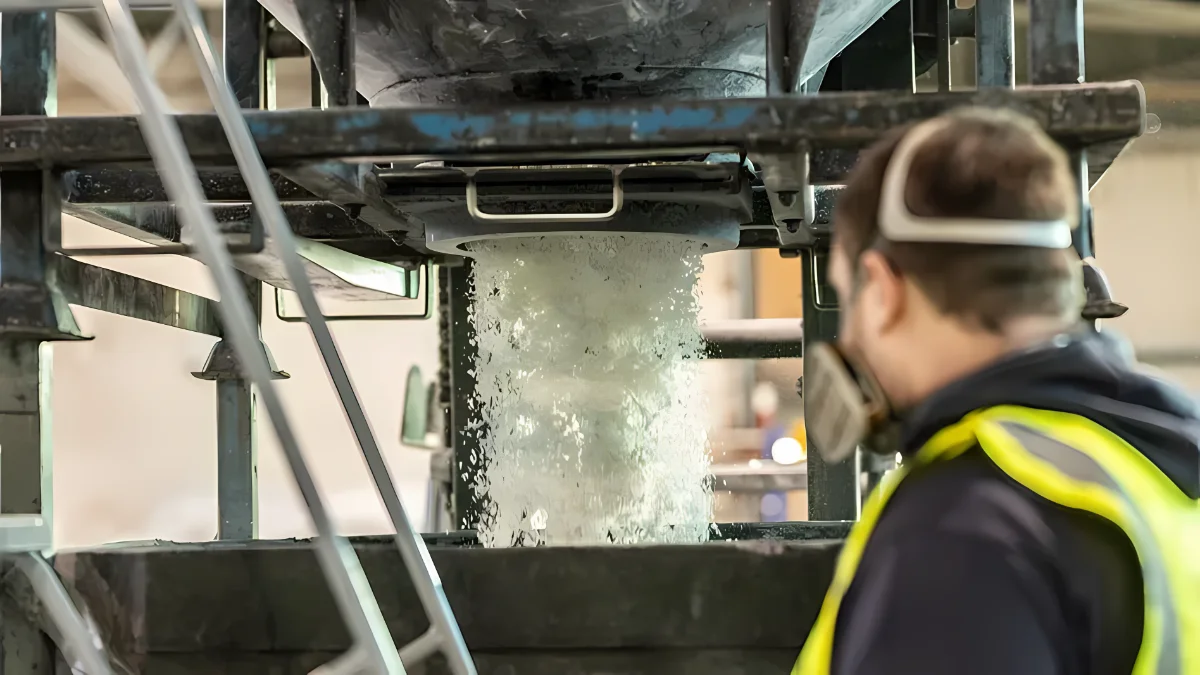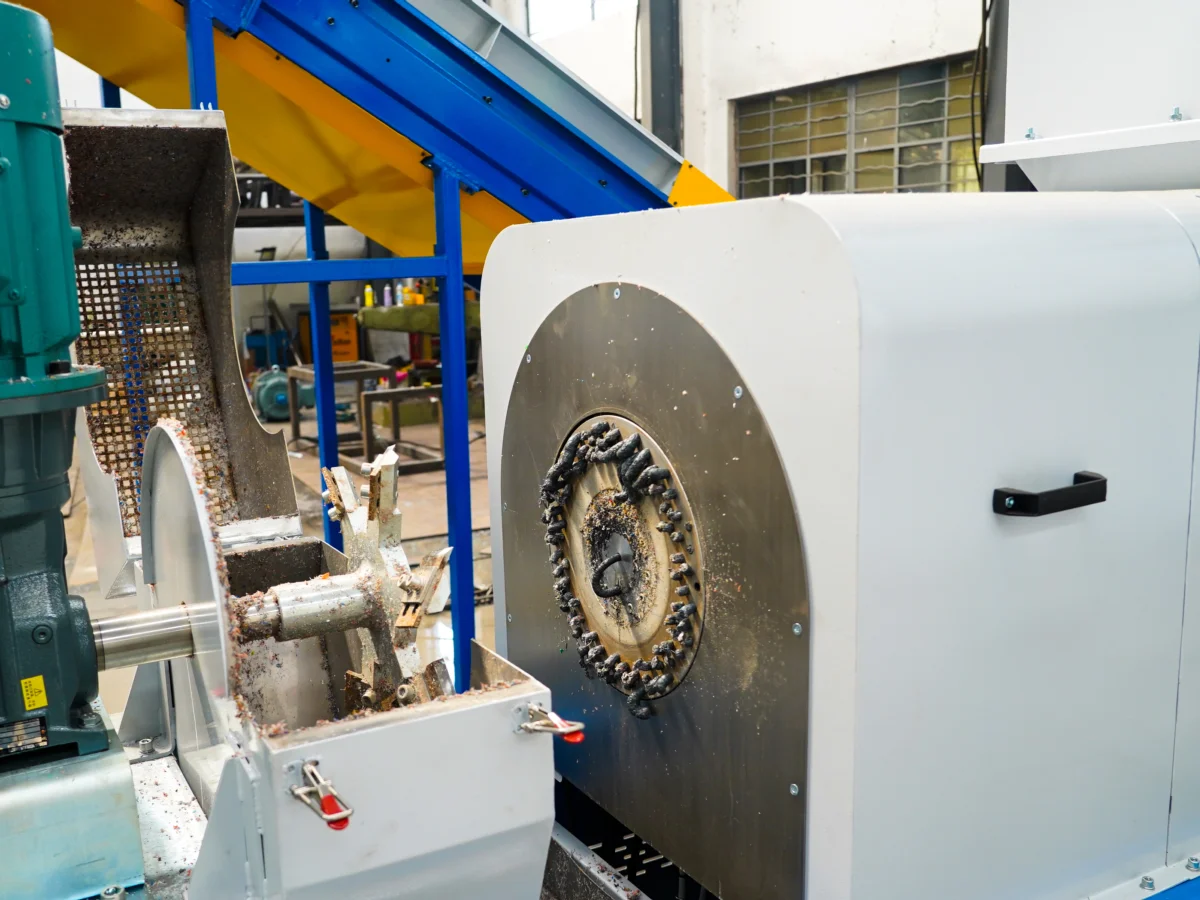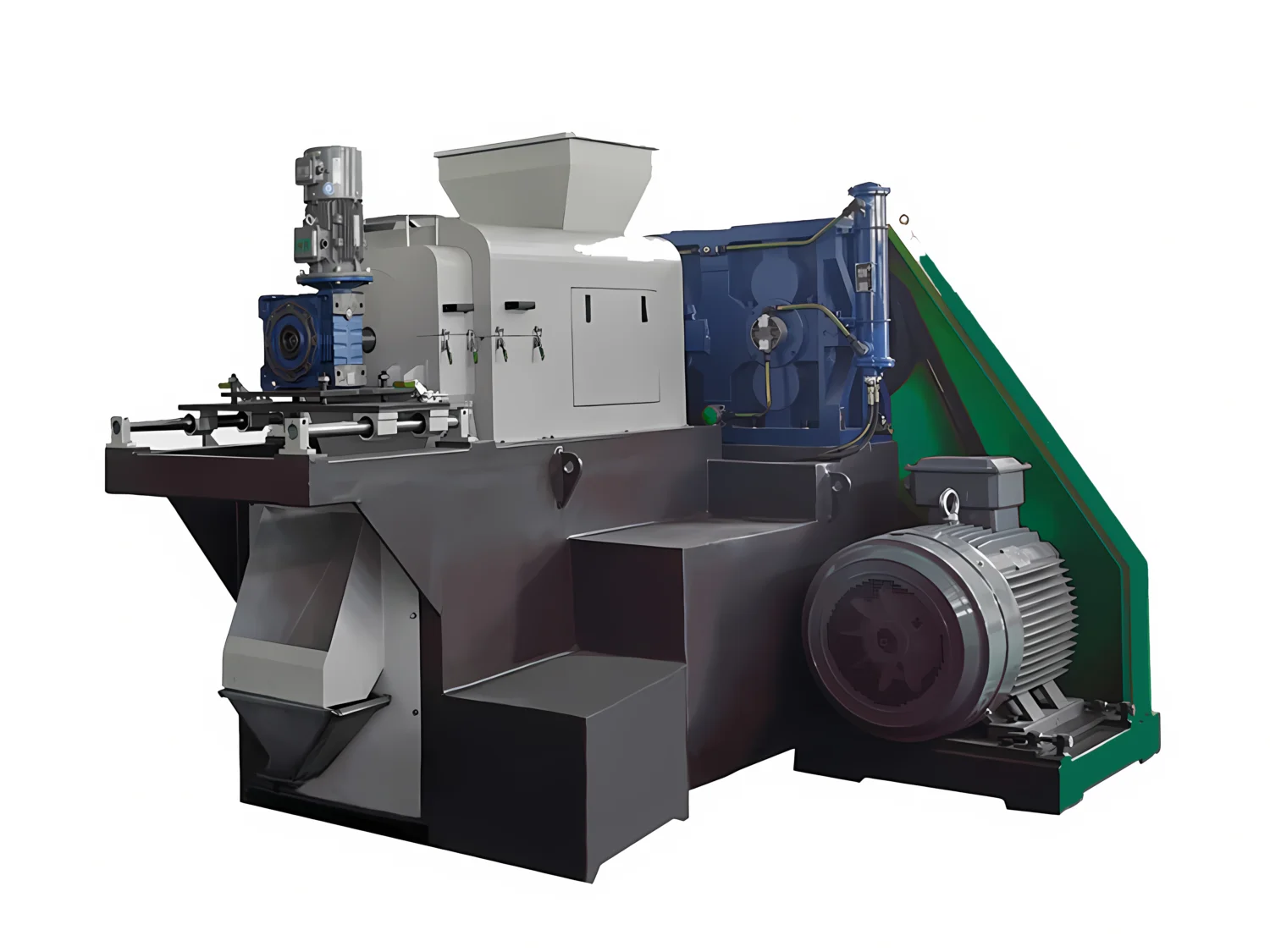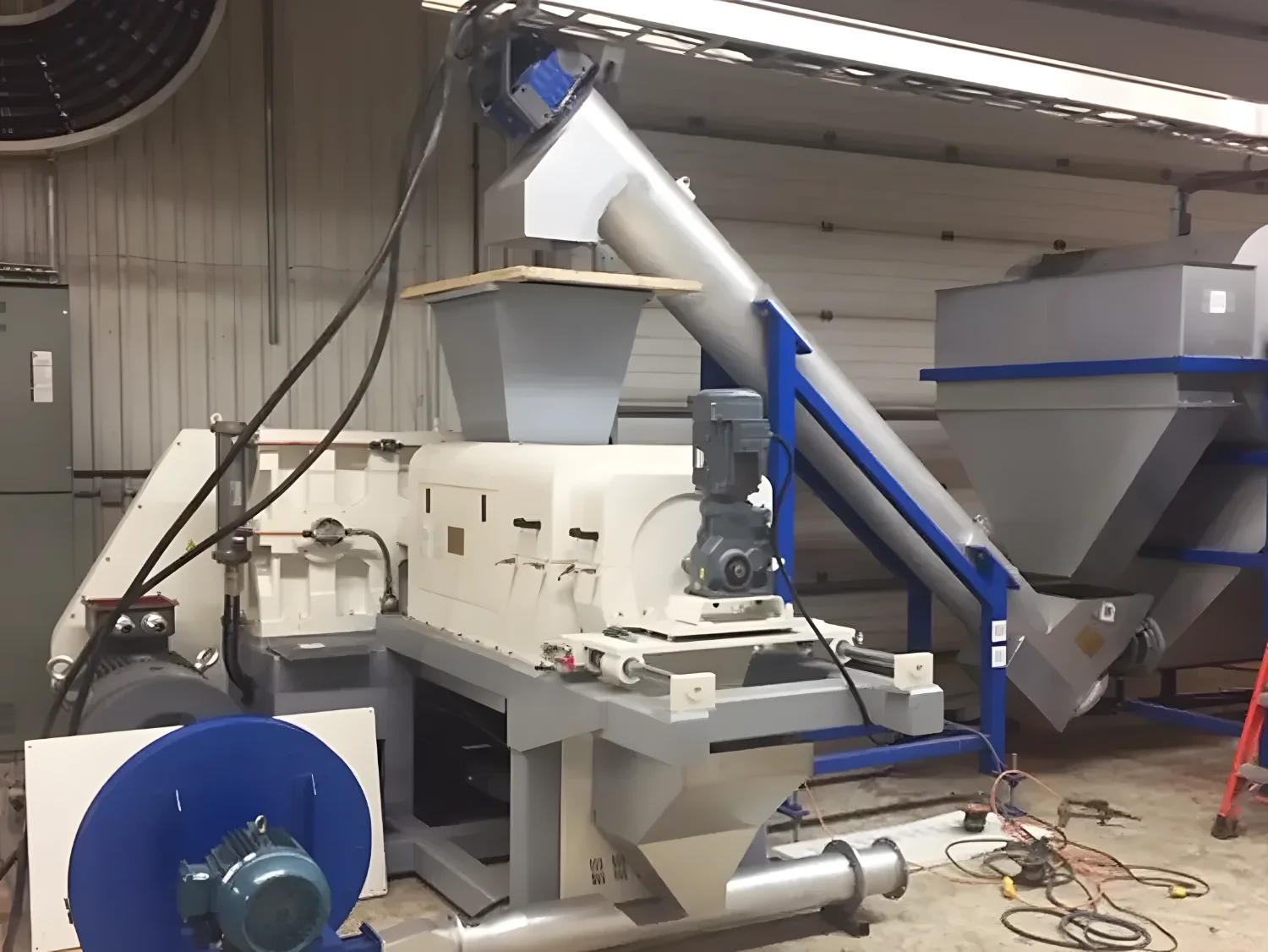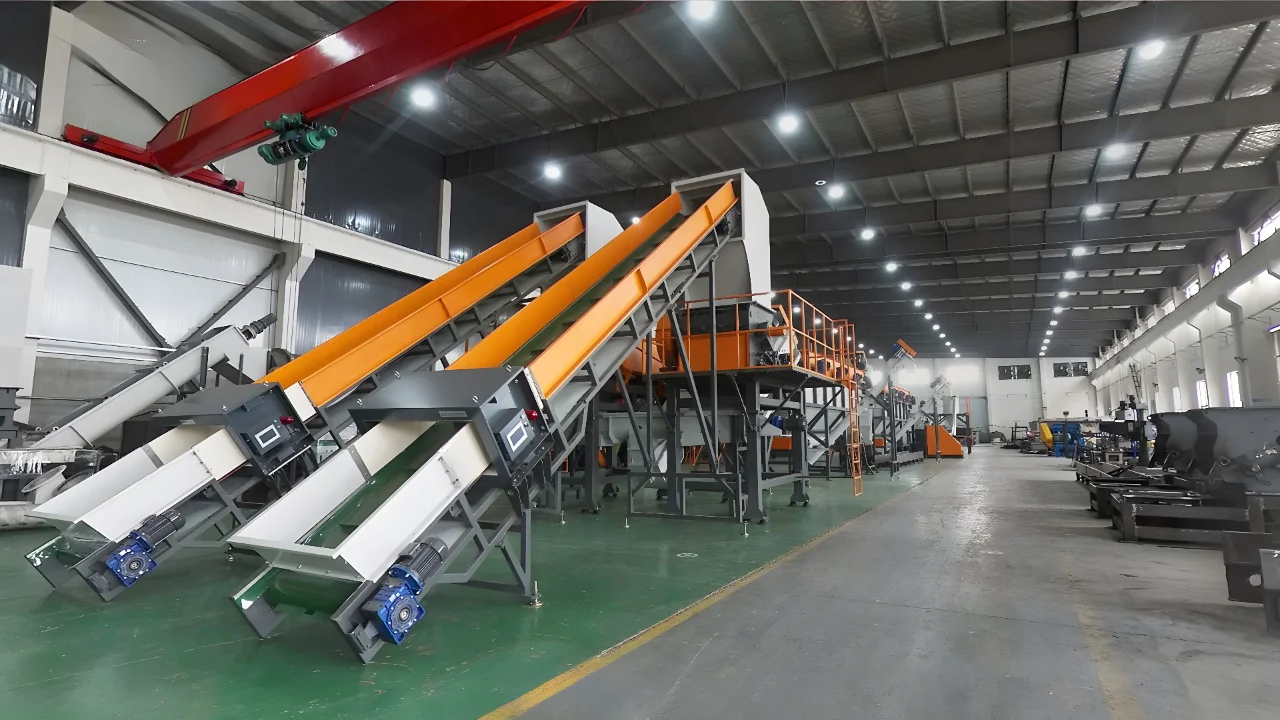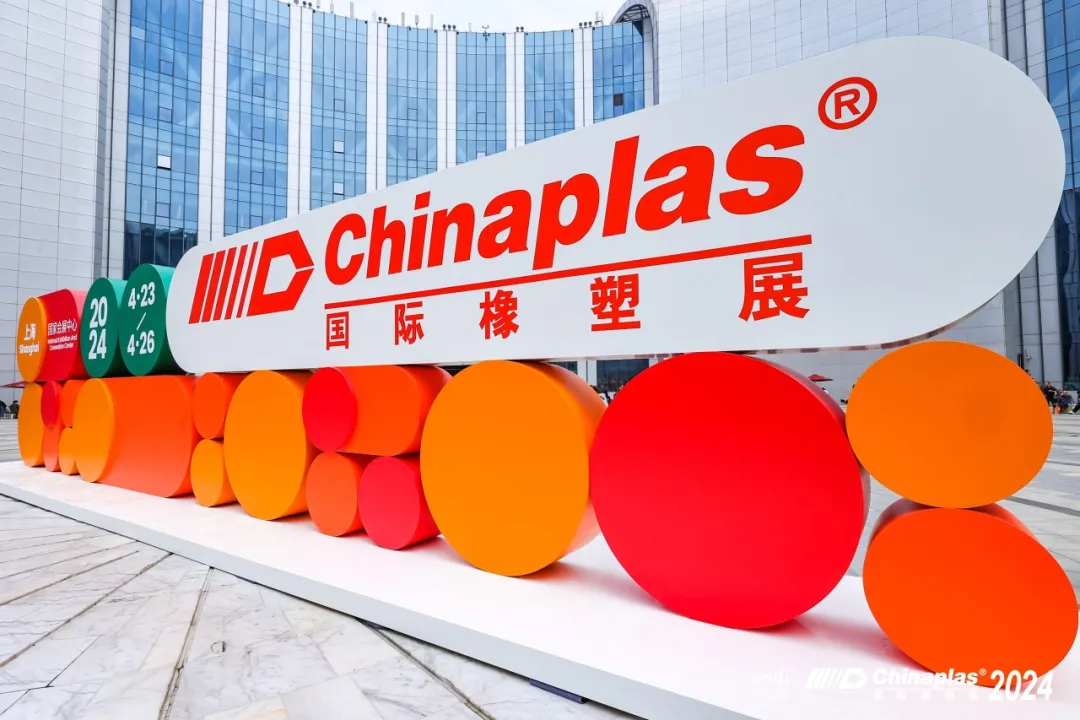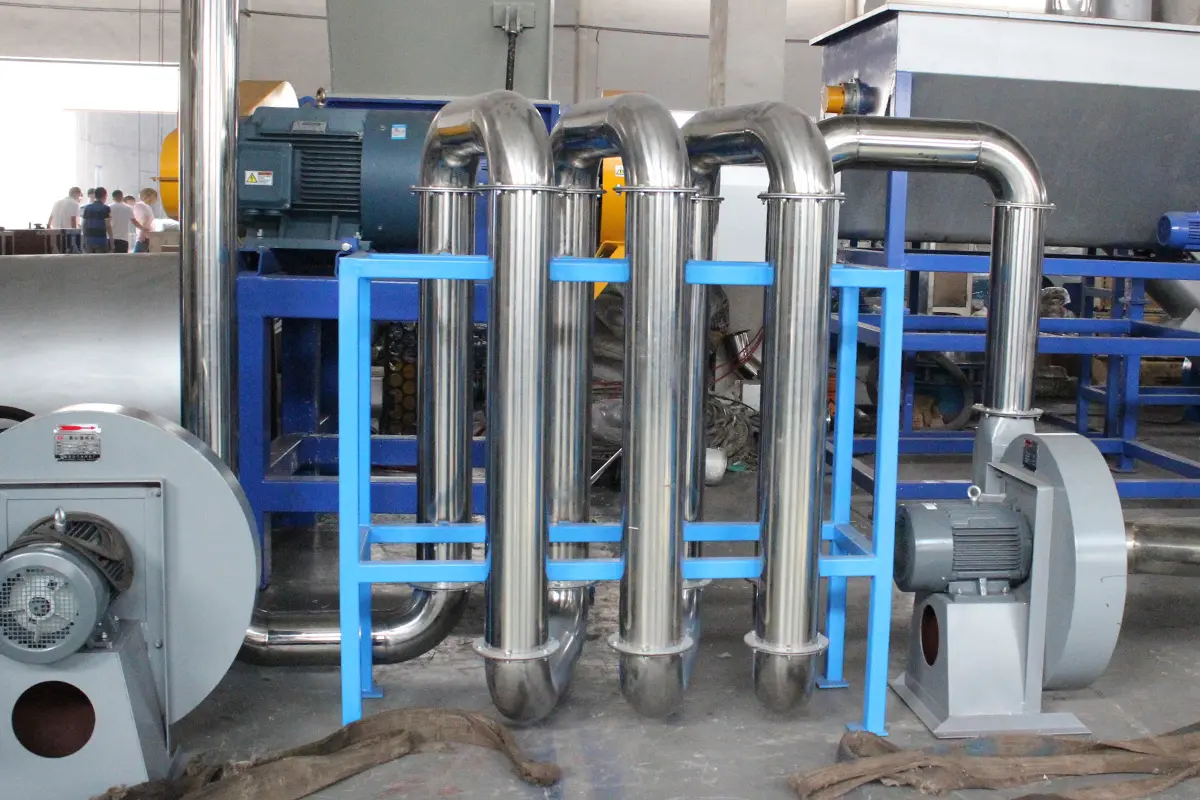Nyheder om genbrug
Nå nye højder! På åbningsdagen hoppede 93.241 eliter ind i faldskærm og steg med 34.66%! Det dominerende returshow i CHINAPLAS tændte Shanghai!

CHINAPLAS 2024 oplevede et rekordstort fremmøde på 93.241 besøgende på åbningsdagen, inklusive 19.380 fra udlandet, hvilket satte et nyt højdepunkt for det daglige antal internationale gæster.

Efterhånden som den ikoniske udstilling skrider frem til sin anden dag, vises et væld af plastik- og gummiteknologier. Blandt disse er løsninger, der tilbyder omkostningsbesparelser og høj effektivitet, særligt fængslende for deltagere.
I det fremherskende globale økonomiske landskab er det afgørende for producenterne at omfavne omkostningsbesparende produktionsstrategier for at øge konkurrencefordele, øge fleksibiliteten, øge rentabiliteten og fremme bæredygtighed.
Producenter, der anvender sådanne strategier, kan levere produkter eller tjenester til reducerede priser uden at gå på kompromis med kvaliteten, potentielt erobre en større markedsandel og øge avancerne.





For nylig er "ny produktivitet" steget i popularitet, hvor næsten ti nye og fremtidsfokuserede industrier har trukket betydelig opmærksomhed. Disse sektorer, herunder nye energikøretøjer, ny brintenergi, nye materialer, innovative lægemidler, biofremstilling, kommerciel rumfart og lavhøjdeøkonomien, trives med ubegrænsede innovationer. For eksempel oplevede Kinas nye energikøretøjsindustri i 2023 en år-til-år stigning på 35,8% i produktion og 37,9% i salg, hvor eksporten steg med 67,1%, hvilket hævdede over 60% af den globale markedsandel.
Bag denne bølge af industriel innovation ligger afgørende støtte fra upstream-leverandører, herunder fremskridt inden for nye plast- og gummimaterialer, udstyr og processer. På CHINAPLAS 2024 bliver besøgende introduceret til en række banebrydende teknologier, der flytter grænserne for downstream-applikationer. Innovationer på skærmen inkluderer specialiserede silikone-elastomerer til nye energikøretøjer, materialer, der forbedrer letvægt, effektiv termisk styring og genanvendelighed i solid-state batteripakker, og halogenfri flammehæmmende forstærket PA66, der bruges i højspændingsstik. Derudover teknologier som POE og silan-podede olefinpolymerer, lysstabilisatorer til fotovoltaiske klæbende film, ETFE-film til at øge effektiviteten af fotovoltaiske modul, solcelleautomatiske matricer, medicinsk-grade PLA og PEEK 3D filamentekstruderingsudstyr, biologisk nedbrydeligt knogle-negle-sprøjtestøbningsteknologi, specialfremstillet genbrugsmaterialer og PHA-løsninger til specialfremstillede materialer, PHA-løsninger. inden for rumfart, luftfart og jernbanetransport, fremvises.
Udstillingen er vært for over 3.800 maskinudstillinger, mere end 1.500 råvareleverandører og 200 debuter af globale og asiatiske teknologier, hvilket gør den til en førende platform for banebrydende teknologier. Sideløbende tiltrækker World Trends and Plastics and Rubber Technology Summit besøgende med sit fokus på kunstig intelligens, tingenes internet, solcelle- og vindkraft, grøn brintlagring, nye energikøretøjer og lithiumbatteriteknologi. Diskussioner udforsker store tendenser, muligheder og udfordringer i den globale plast- og gummiindustri, digitalisering til industriel transformation og bæredygtighed, innovative teknologier til elektriske køretøjer og grøn energi.
Tech Talk-segmentet fremhæver fem hovedtemaer: Miljøvenlige løsninger, avancerede emballageløsninger, plastikløsninger til biler, 3D-print og nye materialer til 2024, der afslører over 30 af de nyeste og mest revolutionerende teknologier. Derudover indeholder Application in Focus-sessionerne 10 tematiske seminarer, der dækker over 60 aktuelle emner såsom fotoelektriske kabler, kulstoffattig energi, medicinsk steriliseringsemballage, integreret biomedicinsk teknik, færdigretters emballage, bilsikkerhed og miljøbeskyttelse.
Dette års udstilling lægger vægt på "Cirkulær økonomi", "Innovative materialer", "Digitalisering" og "High-end Technologies fra Kina", der viser samarbejder med førende udstillere for at præsentere state-of-the-art innovationer og demonstrere fremskridtet og "nye produktive kræfter" i plast- og gummiindustrien. Indsatsen er fokuseret på at fremme kollaborativ innovation blandt upstream- og downstream-sektorer for at fremskynde udviklingen af disse "nye produktivkræfter."
Udstillingens 17 temazoner fremhæver miljøvenlige fremstillingsinitiativer, såsom Recycling Technology Zone, Bioplastics Zone og Recycled Plastics Zone, med det formål at udforske det enorme potentiale i den cirkulære økonomi. Udstillede teknologier inkluderer 90% genanvendt polycarbonat efter forbruger, massebalanceret PA66 med asiatisk plastaffald efter forbruger, kemisk genanvendt medicinsk ABS-materialer, bæredygtig TPE, flaskeflager sorteringsmaskiner, og mere.
Materiel innovation fortsætter med at drive teknologiske gennembrud og opgraderinger på tværs af forskellige industrier. Med over 1.500 råvareleverandører byder udstillingen på en bred vifte af innovative materialer, herunder verdens første PA12-pulver til 3D-print afledt af biologisk genbrugsmaterialer, non-food flaskehætter lavet af post-consumer genanvendt PP-plast, uorganiske antibakterielle tilsætningsstoffer, grafen masterbatch og mere.
I temazonerne for digital økonomi opdager besøgende innovative løsninger, der omfatter maskinlæring, kunstig intelligens, skimmelovervågning, data- og billedovervågning, visioninspektionssystemer, fuldservo-automatisk blæsestøbning, systemintegration, kollaborative robotter, modulære designsystemer, løsninger til automatiseret sammenkobling af flere produktionsprocesser, høj-, opgraderet malingsteknologi med høj, opgraderet robot, støbt, armeret malerteknologi nøglefærdige løsninger til højt integrerede medicinske pipettespidser.
Lokale virksomheder spiller en væsentlig rolle, med over 800 kinesiske virksomheder anerkendt som "teknologisk avancerede små og mellemstore virksomheder" og mere end 250 tildelt som "Små giganter." De fremviser innovationer såsom to-plade intelligent sprøjtestøbemaskiner, højhastigheds præcisionssprøjtestøbemaskiner og banebrydende 56-lags nano-wrap-filmproduktionslinjer, der demonstrerer "High-end Technologies fra Kina" for det globale publikum.

Plastic Recycling & Circular Economy Conference og Showcase, der blev afholdt den 22. april, samlede over 1.000 brancheledere, som delte indsigt om "Genbrug af plast og modetrends," "Genbrug og ny plastøkonomi" og "Industriel forbindelse og lavt kulstofindhold på alle områder."
I en verden, der er mere og mere bevidst om miljømæssig bæredygtighed, er genbrugsmaskineriets rolle, især plastkværnmaskiner, blevet afgørende. Som en erfaren ekspert inden for markedsføring af mekanisk udstyr, med fokus på at skabe værdidrevet indhold, præsenterer jeg et dybdegående kig på plastkværnmaskinen til genbrug – en nøglespiller i den grønne revolution.



